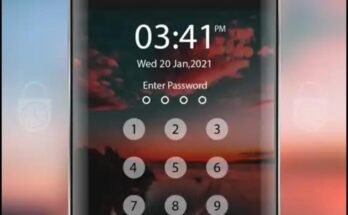Understanding the Importance of Securing Your Wi-Fi Network
Wi-Fi has become an essential part of our daily lives, enabling us to connect to the internet and stay connected wherever we go. However, with the increasing number of devices and the growing reliance on Wi-Fi, it is crucial to ensure the security of your network. One of the most common concerns is the risk of unauthorized access to your Wi-Fi network, which can lead to privacy breaches and potential misuse of your internet connection.
The Risks of Unauthorized Access
When someone gains unauthorized access to your Wi-Fi network, they can potentially intercept and monitor your internet traffic, access your personal information, and even perform malicious activities. This can include stealing sensitive data, such as passwords and credit card information, and using your network for illegal activities, which can lead to legal consequences for you.
Additionally, unauthorized users can slow down your network speed by consuming your bandwidth, resulting in a poor internet experience for you and your legitimate users. Therefore, it is essential to take the necessary steps to secure your Wi-Fi network and protect yourself from these risks.
Securing Your Wi-Fi Network
Here are some effective measures you can take to secure your Wi-Fi network:
1. Change the Default Administrator Password
When setting up your Wi-Fi router, it is important to change the default administrator password. Many routers come with a default password, which is widely known and can be easily exploited by attackers. By changing the password, you can prevent unauthorized access to your router’s settings and ensure only authorized individuals can make changes.
2. Enable Network Encryption
Enabling network encryption is crucial to protect your Wi-Fi network. The most common encryption protocols are WPA2 (Wi-Fi Protected Access 2) and WPA3. These protocols encrypt the data transmitted between your devices and the router, making it difficult for unauthorized users to intercept and decipher the information.
3. Use a Strong Wi-Fi Password
Choosing a strong Wi-Fi password is essential to prevent unauthorized access. A strong password should be at least 12 characters long and include a combination of uppercase and lowercase letters, numbers, and special characters. Avoid using easily guessable passwords, such as your name or birthdate, as they can be easily cracked by attackers.
4. Disable Remote Management
Remote management allows you to access your router’s settings from outside your network. However, it also provides an entry point for attackers. It is recommended to disable remote management unless you specifically require it, as it reduces the risk of unauthorized access to your router.
5. Enable MAC Address Filtering
MAC address filtering allows you to specify which devices are allowed to connect to your Wi-Fi network based on their unique MAC addresses. By enabling this feature, you can restrict access to only the devices you trust, preventing unauthorized devices from connecting to your network.
Conclusion
Securing your Wi-Fi network is crucial to protect your privacy, prevent unauthorized access, and ensure a reliable internet experience. By following the steps mentioned above, you can significantly reduce the risk of unauthorized access to your Wi-Fi network and enjoy a secure and hassle-free connection.

